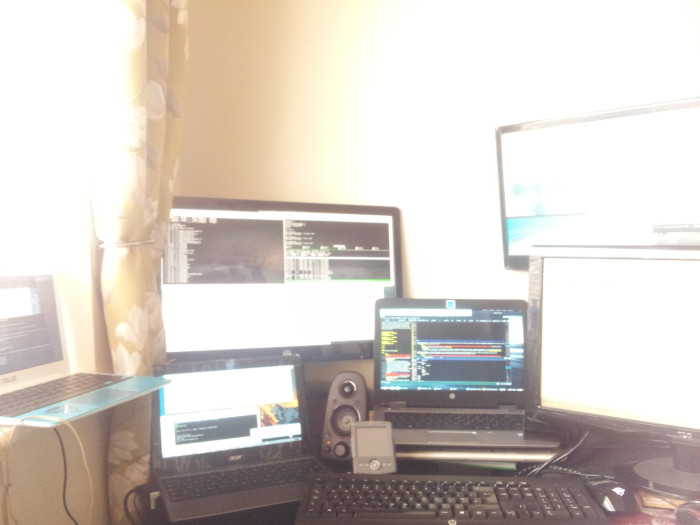

THIS year started slowly due to two machine failures. First it was my wife's and then (weeks later) it was mine. The hard-drive wasn't aging well (it's 11 years old) and risk of severe data loss had grown greater by the week. I had to reboot several times because the root filesystem kept locking up (to avert critical failure) and at that point the battery wasn't working, the screen had not worked for more than a year (I've an used external one on this laptop) and even the keyboard was defunct (so I've used an external one). The reboots are a pretty big deal because I ran some important things on this laptop (IRC logging for instance), on a 24/7 basis, and reboots were like an annual thing. Uptime was really good until the disk kept failing (becoming read-only until a file system check).
"Uptime was really good until the disk kept failing (becoming read-only until a file system check)."Due to hardware issues earlier this year we bought two used (refurbished/"preowned") laptops and put Debian 10 on them. It was pretty spectacular that everything worked well out of the box and was simple to set up. Configuring a printer took less time than it took to feed it paper (my wife did all that on her own yesterday).
The hardest thing about Debian wasn't setting it up as a system (post-installation). The installer still uses a lot of jargon (remember the old joke about the meaning of the word "Ubuntu") and if one needs firmware (binary blobs) to get Wi-Fi going, then things can get tricky. In the name of freedom and FSF endorsement, of course...
"Due to hardware issues earlier this year we bought two used (refurbished/"preowned") laptops and put Debian 10 on them. It was pretty spectacular that everything worked well out of the box and was simple to set up."After she had set up her laptop with Debian 10 (and included were all the desktop environments available) my wife installed it on mine as well. She didn't struggle, she was technical enough and all I needed to provide was a password.
Debian GNU/Linux does not spend billions of dollars on marketing; it does not bribe sites like ZDNet to totally control them -- even their "Linux" section.
Up until the start of this year I did OK under GNU/Linux with never a computer that had more than 2 GB of RAM. I did all my work just fine with such minimal specs.
In my experience, setting up GNU/Linux (major distributions and their derivatives) in 2020 is very easy. The last time I actually installed Windows I think I was using floppy disks, but people say it's still a difficult experience because one must pursue drivers and deal with various compatibility issues, sometimes licensing issues as well.
"In my experience, setting up GNU/Linux (major distributions and their derivatives) in 2020 is very easy."Debian now uses systemd, which some prominent Debian figures oppose and I cannot blame them. Devuan is still available for those looking to dodge systemd.
We're still planning to migrate the site to another operating system, maybe Devuan. A migration isn't as simple as initially hoped for various technical reasons and lack of spare hardware (one physical server and hypervisor). But we're still working on that whenever time permits. ⬆